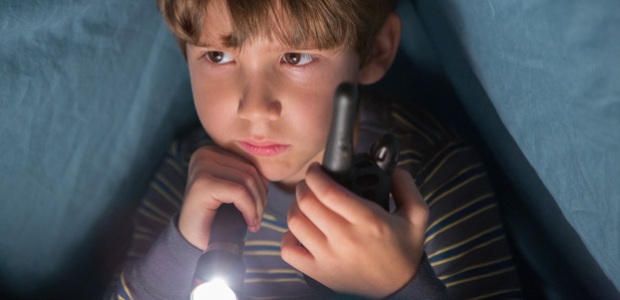Dark Skies begins with a perplexing quote from science fiction novelist and paranormal theorist Arthur C. Clarke. It plainly suggests that we are either alone in the universe or we are not, and that whichever possibility we choose to believe, the outcome is as terrifying as the other. Using this theory as the setup, writer-director Scott Stewart embarks on a potentially terrifying narrative, but somehow, it all feels like an episode of The X-Files, or at best, a well-made TV movie.
To say that Dark Skies is a cross between sci-fi and spooky horror wouldn’t be saying much. This becomes evident when the viewer recognizes elements from Signs and Paranormal Activity. I should say here that the film’s producers Jason Blum and Jeanette Brill were also responsible for lukewarm horror films like Insidious and Sinister. In other words, if you are an ardent horror movie fan, don’t expect much in terms of originality; even the film’s poster appears to be a rip-off of The Omen (the original and the remake). But like the aforementioned films, the common denominator is that familiar wrecking ball that smashes into the lives of a middle-class suburban family. Daniel Barrett (Josh Hamilton) is between jobs and his wife Lacy (Keri Russell) is a struggling realtor. Already behind on the mortgage, the Barretts become the talk of the town when strange things start happening in and around their Arizona home. Soon after, their young children Jesse (Dakota Goyo) and Sam (Kadan Rockett) exhibit abnormal behaviour and signs of physical abuse. Facing mounting suspicion of abusing their own children may seem like a pin prick when compared to what Daniel and Lucy have to deal with next. Eventually, Lacy stumbles upon Edwin Allard (J. K. Simmons) a recluse paranormal theorist who just happens to have the answers, but a bit too late.
In all fairness, Stewart’s atmospheric build-up is a decent effort and this serves towards one or two scary moments that most viewers may not see coming. These moments are accentuated by Joseph Bishara’s score that seem to attack your acoustic nerves, as if in tandem, when on-screen characters cover their ears in pain. Cinematography from David Boyd (Get Low) also adds to the narrative’s darkening mood where the film’s early angles suggest that something is watching humans from a distance. Then there is Russell’s believable struggle of a mother who must do everything to protect her young ones. But that’s all there is that works in favour of the film. Although Simmons’ character offers some respite by strongly suggesting that aliens have already invaded Earth and humans are nothing but lab mice in the grand scheme of things. These answers come too late in the movie because Stewart’s final act is abrupt and annoyingly ambiguous. Even with its good moments, Dark Skies is ultimately a rip-off that borrows from preceding films in the genre. And all the effort that has gone into its making is undermined by the nature in which the director chooses to end the film. While some viewers will find the premise interesting, others will recall Fox Mulder’s memorable yet obscure statement—“The truth is out there”. Believe if you will. Or not.
Rating: 




http://www.youtube.com/watch?v=w0FzdInI75c
